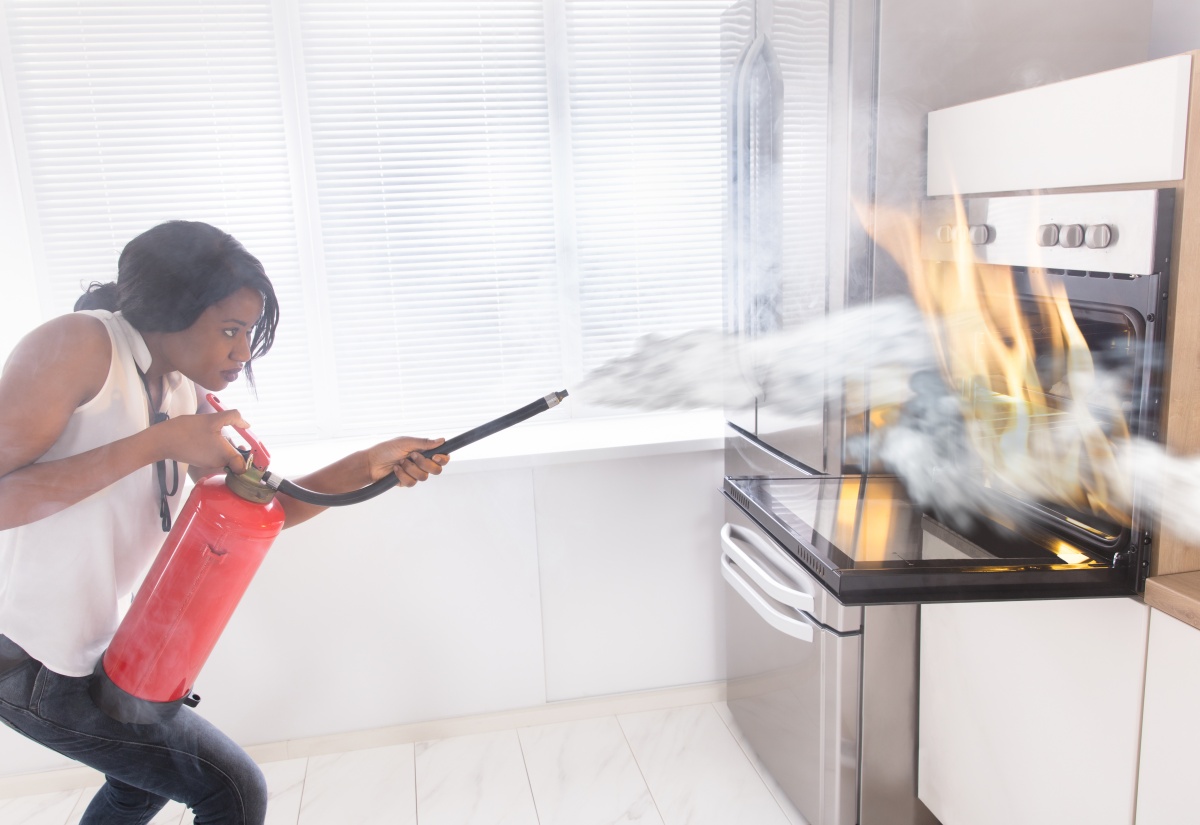JFB Urges Citizens to Prioritise Fire Safety at Home
By: , April 16, 2025The Full Story
The Jamaica Fire Brigade (JFB) is imploring caregivers, parents and guardians to prioritise fire safety in the home.
The plea comes against the background of an increase in residential fires in 2024.
JFB Commissioner, Stewart Beckford, tells JIS News that the JFB responded to 1,229 residential fires last year, representing 76.5 per cent of all structural fires.
The figure is a 2.6 per cent increase from the 1,195 residential fires reported in the previous year.
Commissioner Beckford informs that all fire-related deaths for 2024 were due to fires that occurred in the home.
“It is important that [parents] adhere to the tips that we do give on a regular basis, which are available on our website for persons to access,” he says.

With naked flames and electrical short circuits found to be the two main causes of fires within the home, the fire chief is providing some safety tips to preserve life and property.
He is imploring individuals, who are experiencing power outages, whether due to a power cut from the national grid or an absence of electricity, to exercise extra caution when using candles and lamps.
“When using a candle, make sure that it’s placed away, at least three feet, from any flammable material such as window curtains, tablecloth, and so on, so that those don’t come in contact with the [flame],” he says.
Commissioner Beckford also points out that candles should be placed on a hard heat-resistant surface to prevent fires, especially when they burn out.
“Better yet, put it in a container with a little bit of water at the base, so when it burns down it will extinguish itself,” he advises.
He says that candles should never be placed near windows or in areas where the breeze could cause them to tip over, potentially leading to a fire.
To prevent electrical short circuits, Commissioner Beckford is urging homeowners to have their electrical systems inspected by certified electricians.
This is to be done particularly in homes with older wiring, which may have been in place for decades.
“We [also] encourage persons not to overload circuits. If you’re using an extension cord, use those that are UL certified,” the fire chief adds, noting that they “don’t necessarily get damaged easily”.
Commissioner Beckford indicates that another key fire safety tip to be observed in the home is to keep lighters and matches out of the reach of children.
“They are curious, they are inquisitive, and they’re going to want to experiment,” he says.
Last year, four of the 27 fire-related deaths were children ages one to eight years.
In one of the incidents, the four-year-old got hold of a lighter, was playing with it on the bed, ultimately resulting in a fire.
Another growing concern is how quickly modern homes burn. Today’s synthetic materials, commonly used in furniture and home decor, burn much faster than the cotton materials of previous generations
“Twenty-five years ago, once the fire alarm goes on, you had 15 to 17 minutes to get out of an apartment building. Now you have less than three minutes once the alarm goes off,” Commissioner Beckford laments.
He points out that most homes in Jamaica where fires occur lack alarms, and as such, residents are only alerted by the smoke or heat, but by then it may be too late to escape.
For this reason, homeowners are being advised to instal smoke detectors in their homes.
“These are relatively inexpensive but they can save lives. The data has shown that, especially in the United States, where they tend to follow these things religiously, three out of every five deaths in the home occurred in homes that don’t have a smoke detector. If they do have one, it doesn’t work,” Commissioner Beckford says.
Fire extinguishers are also highly recommended for every household.
“Fire extinguishers and smoke detectors are a good combination. The smoke detector will alert you that there’s a fire and the fire extinguisher is what you’ll use to put it out if it is not of a certain magnitude. If it’s a certain magnitude, we encourage you to leave the building. Don’t try and fight that with a fire extinguisher,” advises the Commissioner.
He further cautions persons not to use water to put out a grease fire.
“Water, oil and fire don’t mix. That’s a no-no. So, if you have a fire extinguisher in your house, that can assist in putting that fire out to prevent it from spreading and probably destroying the entire property,” says Commissioner Beckford.
Another crucial recommendation is for homeowners to have a well-thought-out emergency escape plan.
“It’s very important that you have that plan, and not just to have it but to practise utilising that plan, what we refer to as the drills,” the fire chief states.
The emergency plan should include the escape route, meeting point for when the building is evacuated and an identified individual to conduct the head count.
With these simple yet essential fire-safety measures, families can help protect themselves from the growing threat of residential fires, ensuring the safety of their loved ones and their homes.


